- Home
- Michael Anderle
One Dark Future
One Dark Future Read online
One Dark Future
Opus X™ Book Eight
Michael Anderle
One Dark Future (this book) is a work of fiction. All of the characters, organizations, and events portrayed in this novel are either products of the author’s imagination or are used fictitiously. Sometimes both.
Copyright © 2020 Michael Anderle
Cover by Gene Mollica Studios
Cover copyright © LMBPN Publishing
This book is a Michael Anderle Production
* * *
LMBPN Publishing supports the right to free expression and the value of copyright. The purpose of copyright is to encourage writers and artists to produce the creative works that enrich our culture.
* * *
The distribution of this book without permission is a theft of the author’s intellectual property. If you would like permission to use material from the book (other than for review purposes), please contact [email protected]. Thank you for your support of the author’s rights.
* * *
LMBPN Publishing
PMB 196, 2540 South Maryland Pkwy
Las Vegas, NV 89109
* * *
First US edition, August 2020
eBook ISBN: 978-1-64202-772-3
Print ISBN: 978-1-64202-773-0
* * *
The Opus X Universe (and what happens within / characters / situations / worlds) are copyright © 2019-2020 by Michael T. Anderle and LMBPN Publishing.
Contents
Chapter 1
Chapter 2
Chapter 3
Chapter 4
Chapter 5
Chapter 6
Chapter 7
Chapter 8
Chapter 9
Chapter 10
Chapter 11
Chapter 12
Chapter 13
Chapter 14
Chapter 15
Chapter 16
Chapter 17
Chapter 18
Chapter 19
Chapter 20
Chapter 21
Chapter 22
Chapter 23
Chapter 24
Chapter 25
Chapter 26
Chapter 27
Chapter 28
Chapter 29
Chapter 30
Chapter 31
Chapter 32
Chapter 33
Chapter 34
Chapter 35
Chapter 36
Chapter 37
Chapter 38
Chapter 39
Chapter 40
Chapter 41
Chapter 42
Chapter 43
Chapter 44
Chapter 45
Chapter 46
Chapter 47
Chapter 48
Chapter 49
Chapter 50
Chapter 51
Chapter 52
Chapter 53
Chapter 54
Chapter 55
Chapter 56
Author Notes - Michael Anderle
Books By Michael Anderle
Connect with Michael Anderle
The One Dark Future Team
Thanks to the JIT Readers
* * *
Kelly O’Donnell
Jeff Eaton
Dave Hicks
John Ashmore
James Caplan
Deb Mader
Dorothy Lloyd
Peter Manis
Jeff Goode
Paul Westman
Larry Omans
* * *
If I’ve missed anyone, please let me know!
* * *
Editor
Lynne Stiegler
To Family, Friends and
Those Who Love
to Read.
May We All Enjoy Grace
to Live the Life We Are
Called.
Chapter One
April 1, 2230, Low Earth Orbit, Llewellyn Observatory
The horde of data windows and augmented reality overlays in Tony’s smart lenses didn’t do much to dull the excruciating pain of sorting through the piles of data.
So, he made up stupid questions in the middle of an almost incapacitatingly boring data review. His latest was how many years of his life would he be willing to give up to be the person or persons responsible for a great discovery?
Of course, everything depended on the prize. If it was significant enough, he had decided that twenty years would be the maximum. With the ability to prolong life, that wasn’t too much to rake off the end. With a large enough prize, he would be able to afford it.
Maybe six months for something mundane.
Tony had been excited when he was selected for the Vand Foundation Fellowship to Llewellyn Observatory. Not having to hustle for grants to support his graduate work in astronomy meant he should be able to concentrate on the science like he’d always dreamed. It wasn’t the foundation’s fault his dream wasn’t living up to reality.
Even as an undergraduate, he’d quickly understood science was five percent glorious discovery and ninety-five percent hard work.
Or was that ninety-nine percent perspiration, one percent inspiration?
Understanding the less impressive parts of academic research didn’t mean he held his patrons in great regard. Tony used to be impressed with charitable groups like the Vand Foundation, but he’d convinced himself they were mostly tax dodges and PR.
It didn’t mean he disliked them, but other than pro forma letters of thanks, he wasn’t about to go overboard.
Still, he didn’t mind for the moment. The grant was helping him, and he’d shake Sophia Vand’s hand if he ever ran into her, which wasn’t likely.
From what he’d heard on the news, she was keeping a low profile, to the point she’d disappeared from the public eye.
He couldn’t blame her, given some of the recent terrorist incidents. Someone like her was more likely to be targeted than a random graduate student like him. That didn’t stop his jealousy, especially when he concluded she probably didn’t even have anything to do with her family foundation other than the occasional news conference.
“If only I could be rich and do what I want and hide when people get annoying.” Tony let his head loll back as he let out a long groan. “This isn’t what I signed up for. I don’t care what they say about that second- and third-year itch!”
Arda, the other graduate student on the station, looked at him with a frown. Tony didn’t want to piss him off.
With only three people on the observatory, including the supervising professor, any personal problems would be painful, and Tony wasn’t scheduled to leave for two months. Despite his whining, he understood the path to a more stimulating future of concentrating on the big picture while having grad students do the grunt work included his current predicament.
He was the stepping stone at this point in his life.
“What did you sign up for, then?” Arda asked. Something about his accent always made it hard for Tony to figure out if he was being sarcastic. He pointed at a graph. “You’re confirming the system analysis with spot checks. That seems to me like it’s exactly what you signed up for. What did you think you were going to do?”
“We can let the system analyze all the comet data.” Tony gestured toward his wall of data windows. “We waste a bunch of our time doing manual spot checks when we should be spending more time doing low-level analysis on candidates of interest, but Professor Lal’s blocking us. He’s using us as the world’s least efficient error-checking routines.” He slapped his palm against his forehead. “It’s not even like he doesn’t believe the system. You heard him the other day. We’re doing this on the off-chance we’re missing something! That’s what he said. I could have done this on Ear
th. What’s the point of even being up here?”
Arda stared at Tony, disapproval building on his face. “I thought you wanted to do your thesis project on long-period comets.” He tapped at a virtual keyboard and brought up a close-up of a dense comet with a long, wispy tail. “It’s not insane that you would be assigned to do data analysis on Solar System comets.”
“You’re missing the point.” Tony lifted his arm and swept away half his data windows. “Look, I’m not trying to be a jerk. I want to do analysis work. However, I don’t want to do glorified error-checking for stupid algorithms. I’m supposed to be training to be a scientist.”
“And this is part of science.” Arda stared at the comet image. “It’s funny when you think about it.”
“How is it funny? You find our valuable time being wasted amusing? I’m sure the Vand Foundation doesn’t throw around academic grants for graduate students to do pointless busywork.”
Arda shook his head, turning away from the picture with a smile. “No, not this work. You and me, being here. That’s what’s funny.”
Tony sighed, doing his best not to show his annoyance to the other student. “I have no idea what you’re talking about. Care to explain?”
“Think about it.” Arda brought up a three-dimensional image of a long-period comet with an elliptical orbit that had it spending thousands of years away from anything in the inner Solar System at a time. “See this one?”
“C/1822 N1,” Tony read off the image’s legend. “Judging by the data, still on its way out, with its next closet run around the seventh millennium.” He smirked. “I think I’ll be done with my data analysis by then.”
Arda gave his head a weary shake, his eyes betraying his disdain for Tony’s thought process. “When it was last closest to Earth, we’d barely begun mastering electricity. Coal trains were the epitome of transportation technology.” He stood and gestured broadly. “In the few centuries on its way out, we’ve gone from mastering the land to the skies and even space. We’ve left our home planet and system. We’ve spread across the stars and run into aliens.”
“Yeah? So?” Tony shrugged. “Technology and humanity march on. That’s why we run Earth and not penguins or those little bastard koala bears.”
“That’s just it.” Arda sank back into his seat. “We have colonies fifty light-years away, but in our home system, we’ve never sent a person farther than Sedna. Of all these comets you’re complaining about, what percentage have we even sent probes to?”
Tony blinked as he thought about the implications. “You’re right, but that’s why I wanted to do something with long-period comets. I know all the sexy research is exosystem work, let alone the ton of people trying to do remote analysis work on alien systems. But here, the mystery’s still waiting for us, even if Lal’s got us wasting time being pointless…” He narrowed his eyes as he focused on his screen. “What the hell? That’s not right.”
“Excuse me? There’s no reason to talk that way to me.”
“Not you, Arda.” Tony licked his lips and pointed at one of his remaining data windows. It was nothing but columns and numbers, but both knew how to interpret time-series comet orbital data.
“Then what?”
“That’s not right!” Tony shouted, his eyes bulging. He summoned three new data windows, all filled with more specific data on a particular comet. His eyes darted back and forth as he continued entering commands. It couldn’t be what he thought.
“What’s going on?” Arda asked.
“Give me a minute. I’m trying to figure something out.”
Arda rolled his eyes and folded his arms. Tony might have annoyed the other student, but if what he was seeing in front of him was accurate, he’d have a far more exciting thesis subject. There was one minor problem with his plan for scientific glory.
“Oh, damn it,” Tony moaned. “I’m going to have to admit to Professor Lal that he was right to make me do this.”
Arda leaned closer to the screen. “What are you seeing?”
Tony jabbed his finger at a data window. “Don’t you get it? One-hundred-thousand-year period on this baby. It’s not super-close at about 1000 AUs out from us right now, about twice as far as Sedna, but you see this?” He pointed to several numbers. “These aren’t just orbit variations. These are orbital changes from the basic expected orbit, all within the last couple of months.”
“That’s impossible. Comets just don’t abruptly change course.” Arda shrugged, the disbelief clear on his face.
“Yeah, it’s weird.” Tony shook his head. “I’ve seen tracking data on this comet before, and I didn’t see these numbers.”
“Then it’s just some sort of data transmission error.” Arda glanced at him. “You’re getting yourself worked up over nothing.”
“Nope, I just crosschecked,” Tony replied. “This is legit data. If anything, there are some problems with the checksums on the original data, but who cares? There’s something making this comet change course, Arda, and that’s the mystery. Maybe all those old theories about a close brown dwarf star out there are true?”
Arda scoffed. “People have been looking for a brown dwarf close to the Solar System for centuries now, and they’ve turned up nothing. And suddenly, you think you’ve found Nemesis in some random data check? Don’t you know how unlikely that is?”
“Unlikely isn’t the same thing as wrong.” Tony gestured at another data window, depicting multiple overlapping orbits of different objects. “But I don’t think I’ve found Nemesis. I think I’ve found something else.”
Arda waited for a moment. “What?”
“This…thing.” Tony pointed to another dot on the window. “This makes it even weirder.”
“What’s that?” Arda tilted his head and squinted. “That’s really small.”
“Super-small,” Tony turned slowly to face the other student. “The historical data from the last couple of weeks has caught a few brief periods of intense thermal activity. If I didn’t know better, I’d say it’s a ship.”
“A ship?” Arda shook his head. “A ship twice as far out as the farthest human settlement in the Solar System? Why would anyone bother flying out that far? A ship way past the HTP?”
“Yes.” Tony looked down for a moment and nodded as he worked through the possibilities. “If they’d done most of their primary burns before getting there, it’d be very hard to spot them that far out. It’s like you said; they’re well past anything with a lot of sensors. It’s easy to get lost out there.”
“But what…why?” Arda rubbed his temples. “Getting that far out might take a year or two, and that’s one way.” He pointed to another dot on the orbital graph. “Sedna’s not even in a good position relative to your phantom ship, so it’s not like they could top off their supplies. And why travel for potentially years just to land on a comet? Why not just wait until one came in closer and then land like people have done tons of times? This comet might be a super long-period, but it’s not special.”
“Except for the mysterious course changes.” Tony took a deep breath and held his hands in front of his chest. “Now, hear me out before you say I’m crazy.”
Arda groaned. “This is going to be painful, isn’t it?”
“There are no unusual emissions or readings in any of the spectra with the comet, but those changes don’t look like reactions to a star or a black hole.” Tony lowered his voice to a near-whisper. “It looks more like a ship doing course corrections.”
Arda looked at a calendar on his screen. “It’s April 1st.” He turned to Tony, narrowing his eyes. “Is this another stupid American April’s Fool prank?”
“This isn’t a prank.” Tony stood, his gaze locked on the orbital path display. “This is a huge scientific discovery. I bet you it is a ship!”
“But according to this data, this comet’s been tracked for almost two hundred years.”
Tony nodded. “Yeah. So? This is the first time it’s demonstrated any movements like that.”
“I don’t know. It’s got to be alien,” Tony snapped. “Probably the Leems. Maybe they crashed into a comet or something and they died, but the automated system is still providing some thrust. Even if we don’t rewrite the first contact story, we can contribute to history.”
Arda chuckled. “You should have majored in history, not astronomy.”
“Oh, crap.” Tony’s eyes widened. “I didn’t even think through the implications.”
Arda glanced at the data, his brow furrowing in concern. “What implications?”
“The other ship,” Tony replied. He gestured widely.
“Let’s pretend there’s a mysterious ship flying out to an even more mysterious alien ship. What about it?”
“Don’t you get it? Somebody already knows.” Tony slapped his forehead. “It’s a ship or a probe.” He brought up another virtual keyboard and didn’t speak for a minute while he typed intensely. “Great. Just great.”

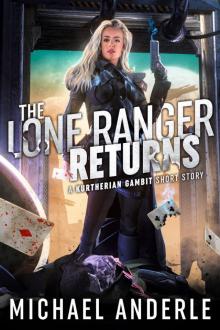 The Lone Ranger Returns
The Lone Ranger Returns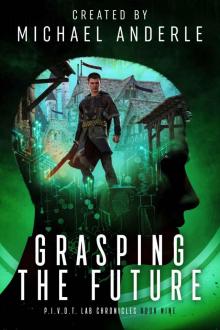 Grasping The Future
Grasping The Future Decision Made
Decision Made Rejected By Heaven: An Urban Fantasy Action Adventure (The Unbelievable Mr. Brownstone Book 2)
Rejected By Heaven: An Urban Fantasy Action Adventure (The Unbelievable Mr. Brownstone Book 2) Road Trip: BBQ And A Brawl (The Unbelievable Mr. Brownstone Book 19)
Road Trip: BBQ And A Brawl (The Unbelievable Mr. Brownstone Book 19)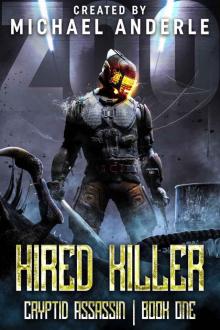 Hired Killer (Cryptid Assassin Book 1)
Hired Killer (Cryptid Assassin Book 1) Monster In Me (Cryptid Assassin Book 8)
Monster In Me (Cryptid Assassin Book 8) The Kurtherian Endgame Boxed Set
The Kurtherian Endgame Boxed Set The Unbelievable Mr Brownstone Omnibus
The Unbelievable Mr Brownstone Omnibus The Caitlin Chronicles Boxed Set
The Caitlin Chronicles Boxed Set Unfaithful Covenant
Unfaithful Covenant The Valkyrie Returns (The Kurtherian Endgame Book 7)
The Valkyrie Returns (The Kurtherian Endgame Book 7) Enter Into Valhalla
Enter Into Valhalla Road Trip: BBQ Delivered with Attitude (The Unbelievable Mr. Brownstone Book 20)
Road Trip: BBQ Delivered with Attitude (The Unbelievable Mr. Brownstone Book 20) One Dark Future
One Dark Future Fatal Mistake: An Urban Fantasy Action Adventure (The Unbelievable Mr. Brownstone Book 11)
Fatal Mistake: An Urban Fantasy Action Adventure (The Unbelievable Mr. Brownstone Book 11) How To Be A Badass Witch: Book Two
How To Be A Badass Witch: Book Two Rogue, Renegade And Rebel (In Her Paranormal Majesty’s Secret Service Book 1)
Rogue, Renegade And Rebel (In Her Paranormal Majesty’s Secret Service Book 1) Desperate Measures
Desperate Measures Shadow Of The Ring: An Urban Fantasy Action Adventure (The Unbelievable Mr. Brownstone Book 16)
Shadow Of The Ring: An Urban Fantasy Action Adventure (The Unbelievable Mr. Brownstone Book 16)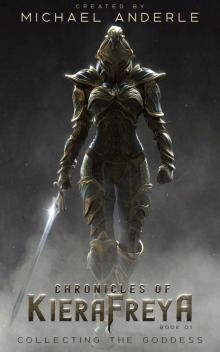 Collecting The Goddess (Chronicles Of KieraFreya Book 1)
Collecting The Goddess (Chronicles Of KieraFreya Book 1) Investigating Deceit
Investigating Deceit One Epic Ring: An Urban Fantasy Action Adventure (The Unbelievable Mr. Brownstone Book 14)
One Epic Ring: An Urban Fantasy Action Adventure (The Unbelievable Mr. Brownstone Book 14) One Bad Decision
One Bad Decision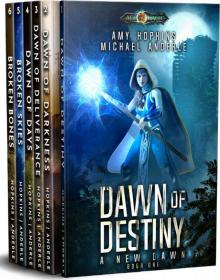 A New Dawn- Complete series
A New Dawn- Complete series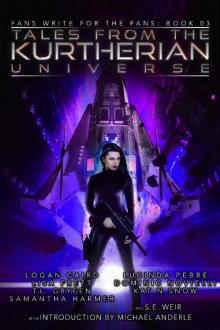 Tales from the Kurtherian Universe: Fans Write For The Fans: Book 3
Tales from the Kurtherian Universe: Fans Write For The Fans: Book 3 Witch Of The Federation III (Federal Histories Book 3)
Witch Of The Federation III (Federal Histories Book 3) Solyrian Conspiracy - C M Raymond & L E Barbant
Solyrian Conspiracy - C M Raymond & L E Barbant Hail To The King: An Urban Fantasy Action Adventure (The Unbelievable Mr. Brownstone Book 8)
Hail To The King: An Urban Fantasy Action Adventure (The Unbelievable Mr. Brownstone Book 8)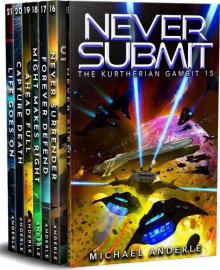 Kurtherian Gambit Boxed Set Three: Books 15-21, Never Submit, Never Surrender, Forever Defend, Might Makes Right, Ahead Full, Capture Death, Life Goes On (Kurtherian Gambit Boxed Sets Book 3)
Kurtherian Gambit Boxed Set Three: Books 15-21, Never Submit, Never Surrender, Forever Defend, Might Makes Right, Ahead Full, Capture Death, Life Goes On (Kurtherian Gambit Boxed Sets Book 3) Karma Is A Bitch: An Urban Fantasy Action Adventure (The Unbelievable Mr. Brownstone Book 12)
Karma Is A Bitch: An Urban Fantasy Action Adventure (The Unbelievable Mr. Brownstone Book 12) How to be a Badass Witch
How to be a Badass Witch Witch Of The Federation (Federal Histories Book 2)
Witch Of The Federation (Federal Histories Book 2) Finish What You Started
Finish What You Started Cabal of Lies
Cabal of Lies Defending the Lost
Defending the Lost Tales from the Oriceran Universe: Fans Write For The Fans: Volume 1 (Oriceran Fans Write For the Fans)
Tales from the Oriceran Universe: Fans Write For The Fans: Volume 1 (Oriceran Fans Write For the Fans)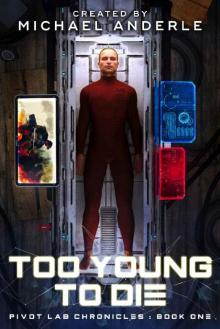 Too Young to Die
Too Young to Die Silent Death (Cryptid Assassin Book 2)
Silent Death (Cryptid Assassin Book 2) The Horsemen Gather: An Urban Fantasy Action Adventure (The Unbelievable Mr. Brownstone Book 17)
The Horsemen Gather: An Urban Fantasy Action Adventure (The Unbelievable Mr. Brownstone Book 17) Animus series Boxed Set
Animus series Boxed Set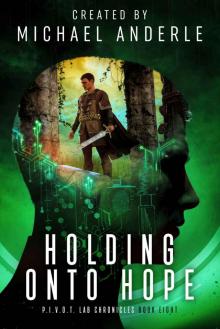 Holding Onto Hope
Holding Onto Hope The Unbelievable Mr. Brownstone Boxed Set One (Books 1-3): Feared By Hell, Rejected By Heaven, Eye For An Eye (The Unbelievable Mr. Brownstone Boxed Sets)
The Unbelievable Mr. Brownstone Boxed Set One (Books 1-3): Feared By Hell, Rejected By Heaven, Eye For An Eye (The Unbelievable Mr. Brownstone Boxed Sets) Enlightened Ignorance
Enlightened Ignorance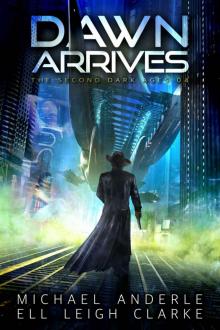 Dawn Arrives (The Second Dark Ages Book 4)
Dawn Arrives (The Second Dark Ages Book 4) Revolution - C M Raymond & L E Barbant
Revolution - C M Raymond & L E Barbant Vax Humana: An Urban Fantasy Action Adventure (The Unbelievable Mr. Brownstone Book 13)
Vax Humana: An Urban Fantasy Action Adventure (The Unbelievable Mr. Brownstone Book 13) Kurtherian Gambit Boxed Set One: Books 1-7, Death Becomes Her, Queen Bitch, Love Lost, Bite This, Never Forsaken, Under My Heel, Kneel or Die (Kurtherian Gambit Boxed Sets)
Kurtherian Gambit Boxed Set One: Books 1-7, Death Becomes Her, Queen Bitch, Love Lost, Bite This, Never Forsaken, Under My Heel, Kneel or Die (Kurtherian Gambit Boxed Sets) The Kurtherian Endgame Boxed Set: Books 1 - 4 - Payback is a Bitch, Compelling Evidence, Through the Fire and Flame, All's Fair in Blood and War
The Kurtherian Endgame Boxed Set: Books 1 - 4 - Payback is a Bitch, Compelling Evidence, Through the Fire and Flame, All's Fair in Blood and War She Is The Widow Maker: An Urban Fantasy Action Adventure (The Unbelievable Mr. Brownstone Book 5)
She Is The Widow Maker: An Urban Fantasy Action Adventure (The Unbelievable Mr. Brownstone Book 5) When Angels Cry: An Urban Fantasy Action Adventure (The Unbelievable Mr. Brownstone Book 6)
When Angels Cry: An Urban Fantasy Action Adventure (The Unbelievable Mr. Brownstone Book 6) Through The Fire and Flame (The Kurtherian Endgame Book 3)
Through The Fire and Flame (The Kurtherian Endgame Book 3)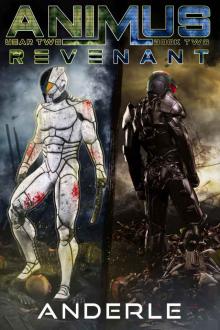 Revenant
Revenant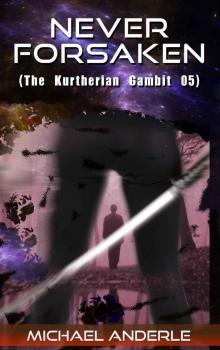 Never Forsaken (The Kurtherian Gambit Book 5)
Never Forsaken (The Kurtherian Gambit Book 5) Alison Brownstone: An Urban Fantasy Action Adventure (The Unbelievable Mr. Brownstone Book 9)
Alison Brownstone: An Urban Fantasy Action Adventure (The Unbelievable Mr. Brownstone Book 9) The Dark Messiah
The Dark Messiah How To Be A Badass Witch: Book Three
How To Be A Badass Witch: Book Three War Of The Four Worlds
War Of The Four Worlds Fight Fire With Fire: An Urban Fantasy Action Adventure (The Unbelievable Mr. Brownstone Book 7)
Fight Fire With Fire: An Urban Fantasy Action Adventure (The Unbelievable Mr. Brownstone Book 7) Death Becomes Her (The Kurtherian Gambit Book 1)
Death Becomes Her (The Kurtherian Gambit Book 1)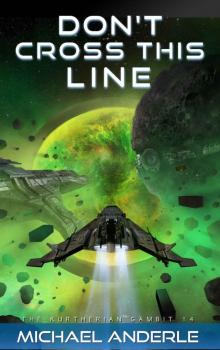 Don't Cross This Line (The Kurtherian Gambit Book 14)
Don't Cross This Line (The Kurtherian Gambit Book 14)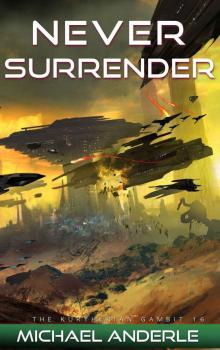 Never Surrender (The Kurtherian Gambit Book 16)
Never Surrender (The Kurtherian Gambit Book 16) Shattered Truth
Shattered Truth The Unbelievable Mr Brownstone Omnibus 3
The Unbelievable Mr Brownstone Omnibus 3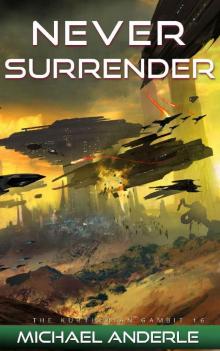 Never Surrender
Never Surrender Love Lost (The Kurtherian Gambit Book 3)
Love Lost (The Kurtherian Gambit Book 3)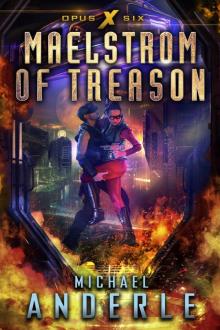 Maelstrom of Treason
Maelstrom of Treason It's Hell to Choose
It's Hell to Choose All’s Fair in Blood and War (The Kurtherian Endgame Book 4)
All’s Fair in Blood and War (The Kurtherian Endgame Book 4) Obsidian Detective
Obsidian Detective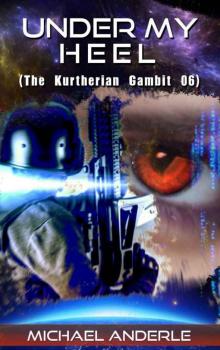 Under My Heel
Under My Heel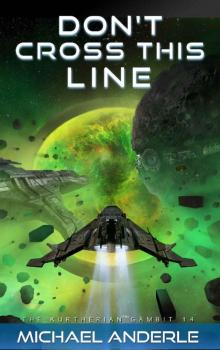 Don't Cross This Line
Don't Cross This Line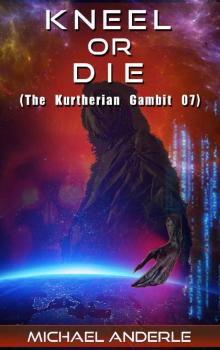 Kneel Or Die
Kneel Or Die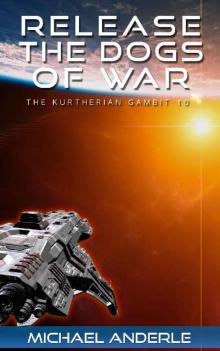 Release the Dogs of War
Release the Dogs of War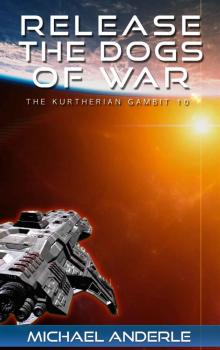 Release The Dogs of War (The Kurtherian Gambit Book 10)
Release The Dogs of War (The Kurtherian Gambit Book 10)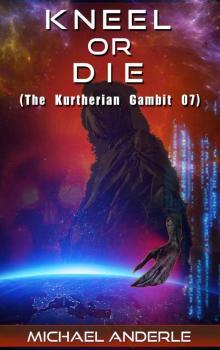 Kneel Or Die (The Kurtherian Gambit Book 7)
Kneel Or Die (The Kurtherian Gambit Book 7)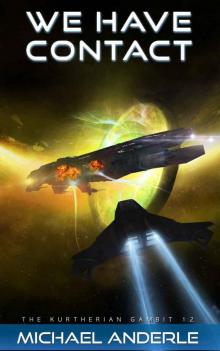 WE HAVE CONTACT (The Kurtherian Gambit Book 12)
WE HAVE CONTACT (The Kurtherian Gambit Book 12) Darkest Before The Dawn
Darkest Before The Dawn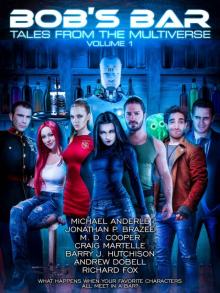 BOB's Bar (Tales From The Multiverse Book 1)
BOB's Bar (Tales From The Multiverse Book 1)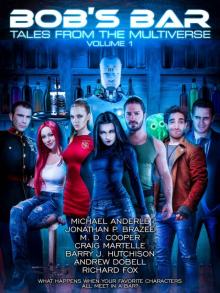 BOB's Bar
BOB's Bar Forever Defend
Forever Defend One Bad Decision: An Urban Fantasy Action Adventure (The Unbelievable Mr. Brownstone Book 10)
One Bad Decision: An Urban Fantasy Action Adventure (The Unbelievable Mr. Brownstone Book 10) Bitch's Night Out (Frank Kurns Stories of the UnknownWorld Book 2)
Bitch's Night Out (Frank Kurns Stories of the UnknownWorld Book 2) Capture Death (The Kurtherian Gambit Book 20)
Capture Death (The Kurtherian Gambit Book 20) SUED FOR PEACE
SUED FOR PEACE Goddess Complete
Goddess Complete The Darkest Night (The Second Dark Ages Book 2)
The Darkest Night (The Second Dark Ages Book 2)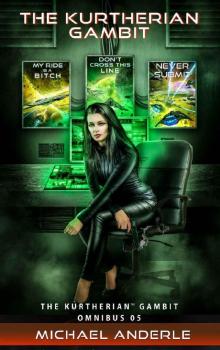 The Kurtherian Gambit Omnibus 05 - The Fans Version: My Ride is a Bitch - Don't Cross This Line - Never Submit
The Kurtherian Gambit Omnibus 05 - The Fans Version: My Ride is a Bitch - Don't Cross This Line - Never Submit Eye For An Eye
Eye For An Eye kurtherian gambit 23.7 - tales of feisty druid 07
kurtherian gambit 23.7 - tales of feisty druid 07 Payback Is A Bitch (The Kurtherian Endgame Book 1)
Payback Is A Bitch (The Kurtherian Endgame Book 1) Bite This
Bite This Eye For An Eye: An Urban Fantasy Action Adventure (The Unbelievable Mr. Brownstone Book 3)
Eye For An Eye: An Urban Fantasy Action Adventure (The Unbelievable Mr. Brownstone Book 3)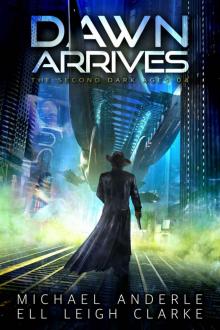 Dawn Arrives
Dawn Arrives Eye For An Eye_An Urban Fantasy Action Adventure
Eye For An Eye_An Urban Fantasy Action Adventure Bite This (The Kurtherian Gambit Book 4)
Bite This (The Kurtherian Gambit Book 4) She Is The Widow Maker_An Urban Fantasy Action Adventure
She Is The Widow Maker_An Urban Fantasy Action Adventure Bitch's Night Out
Bitch's Night Out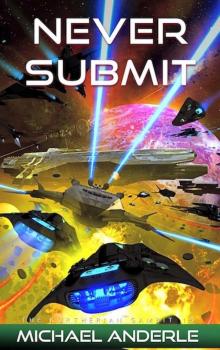 Never Submit
Never Submit My Ride is a Bitch (The Kurtherian Gambit Book 13)
My Ride is a Bitch (The Kurtherian Gambit Book 13) Hail To The King
Hail To The King SUED FOR PEACE (The Kurtherian Gambit Book 11)
SUED FOR PEACE (The Kurtherian Gambit Book 11) Death Becomes Her
Death Becomes Her Might Makes Right (The Kurtherian Gambit Book 18)
Might Makes Right (The Kurtherian Gambit Book 18) When Angels Cry_An Urban Fantasy Action Adventure
When Angels Cry_An Urban Fantasy Action Adventure Ahead Full (The Kurtherian Gambit Book 19)
Ahead Full (The Kurtherian Gambit Book 19) My Ride is a Bitch
My Ride is a Bitch Queen Bitch (The Kurtherian Gambit Book 2)
Queen Bitch (The Kurtherian Gambit Book 2) Fight Fire With Fire_An Urban Fantasy Action Adventure
Fight Fire With Fire_An Urban Fantasy Action Adventure Compelling Evidence
Compelling Evidence Life Goes On
Life Goes On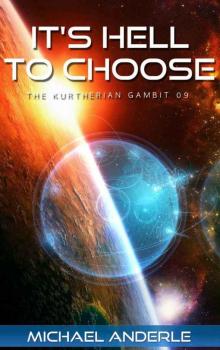 It's Hell To Choose (The Kurtherian Gambit Book 9)
It's Hell To Choose (The Kurtherian Gambit Book 9) Life Goes On (The Kurtherian Gambit Book 21)
Life Goes On (The Kurtherian Gambit Book 21) Forever Defend (The Kurtherian Gambit Book 17)
Forever Defend (The Kurtherian Gambit Book 17) Feared By Hell: The Revelations of Oriceran (The Unbelievable Mr. Brownstone Book 1)
Feared By Hell: The Revelations of Oriceran (The Unbelievable Mr. Brownstone Book 1) Might Makes Right
Might Makes Right Love Lost
Love Lost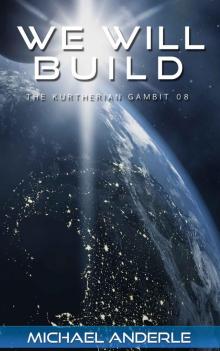 TKG08 WE WILL BUILD Rel 01
TKG08 WE WILL BUILD Rel 01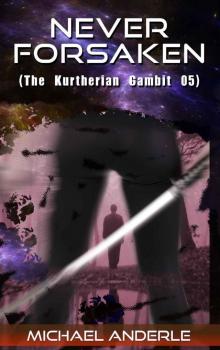 Never Forsaken
Never Forsaken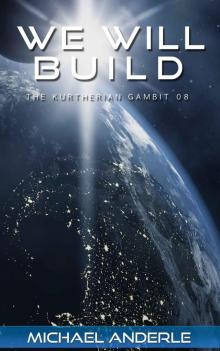 WE WILL BUILD
WE WILL BUILD Queen Bitch
Queen Bitch She Is The Widow Maker
She Is The Widow Maker Rejected By Heaven_An Urban Fantasy Action Adventure
Rejected By Heaven_An Urban Fantasy Action Adventure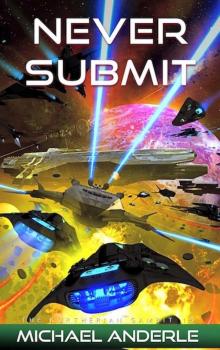 Never Submit (The Kurtherian Gambit Book 15)
Never Submit (The Kurtherian Gambit Book 15) Darkest Before The Dawn (The Second Dark Ages Book 3)
Darkest Before The Dawn (The Second Dark Ages Book 3) Payback Is A Bitch
Payback Is A Bitch Bring The Pain_An Urban Fantasy Action Adventure
Bring The Pain_An Urban Fantasy Action Adventure You Don't Touch John's Cousin (Frank Kurns Stories of the UnknownWorld Book 1)
You Don't Touch John's Cousin (Frank Kurns Stories of the UnknownWorld Book 1) Capture Death
Capture Death Ahead Full
Ahead Full